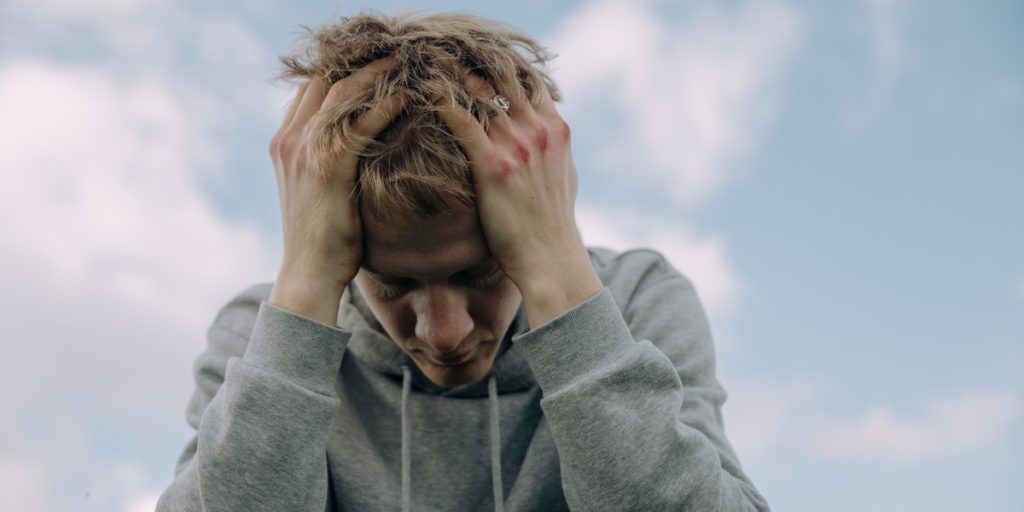The pandemic has wreaked havoc on people’s lives, particularly in terms of mental health. A recent study from Boston University found that depression rates tripled over the first year of the pandemic. Pre-pandemic, roughly 8 percent of U.S. adults suffered from depression. But between March and April of 2020, this number jumped to 28 percent.
When researchers surveyed this same group a year later, depression rates jumped to 32 percent. The survey responses suggested that depression worsened over the course of the pandemic due to financial problems, a lack of childcare, feeling alone, and caring for those with COVID-19. The survey also found that depression disproportionately affected people with lower incomes.
There is no question that depression rates have increased since the start of the pandemic, but higher depression rates are not new. In 2017, researchers from Columbia University’s Mailman School of Public Health and CUNY Graduate School of Public Health and Health Policy found that depression rose significantly between 2005 and 2015, with the most rapid increases seen in young people.
Why is depression increasing at such rapid rates, and what can we do to help? Let’s explore this issue together.
How Many People Suffer from Depression?
Major depressive disorder affects approximately 17.3 million American adults, or about 7.1 percent of the population 18 and older. Additionally, nearly 2 million children ages 3-17 have been diagnosed with depression. Depression commonly co-occurs with other conditions such as substance use, eating disorders, HIV, diabetes, and cancer.
Why some people develop depression and others don’t isn’t exactly clear, but researchers believe it has to do with a combination of risk factors
- Genetics. A family history of depression plays a role in the onset of this disorder, as it’s believed depression can be passed down through families.
- Brain chemistry. An imbalance in brain chemicals (dopamine, serotonin, norepinephrine) can lead to symptoms of depression.
- Certain medical conditions. Certain medical conditions like chronic pain, diabetes, cancer and thyroid disorder can raise the risk for depression.
- Substance use. Drugs and alcohol also contribute to depressive disorders. Even some prescription medications have been linked to depression.
- Stress. Stressful life events, including grief and loss, can overwhelm your ability to cope. It’s also possible that high levels of cortisol may contribute to depression.
Why Are Depression Rates Increasing?
As society continues to change, stress and tension appear to be more common than ever. It might seem like people are more depressed now, but you must also remember that mental health used to be a taboo subject. It’s only been in the last decade or so that mental health is widely talked about.
Nevertheless, statistics show that depression rates are on the rise. There are a number of reasons why this might be the case.
- Social media. Although social media has its benefits, it has largely replaced face-to-face communication. People are now focused on the number of likes, comments, and shares they get, and they rely on these numbers for self-satisfaction.
- Home environment. Over 50 percent of American children come from divorced parents. Kids who experience divorce and brokenness are more likely to struggle with their mental health.
- Relationships. Because people spend more time online and less time ‘together,’ relationships and community ties are weaker.
- High expectations. As a society, we’re more focused on money and image, which is correlated with higher rates of depression. And, we have a tendency to compare our ‘normal’ lives to the ‘perfect’ lives we see online.
Getting Help for Depression
Depression doesn’t just go away over time. It is a treatable disorder that responds well to medication and counseling. The benefit of social media is that it has broken down the stigmas and stereotypes associated with mental health. More people are recognizing their need for help, though many still don’t know where to get it.
To access help for depression, you can speak with your primary care doctor or a mental health professional. If you’re not sure where to find one, you can access these services online. This is especially helpful for those who live in rural areas or lack transportation. Once you speak to a medical professional, they can guide you in the right direction.
If you’re struggling with more than depression, such as an eating disorder or substance use disorder, you’ll need more intensive care. Breathe Life Healing Centers is a depression treatment center in Los Angeles that treats depression and other co-occurring disorders. Contact us today to speak with our caring, compassionate admissions team.













